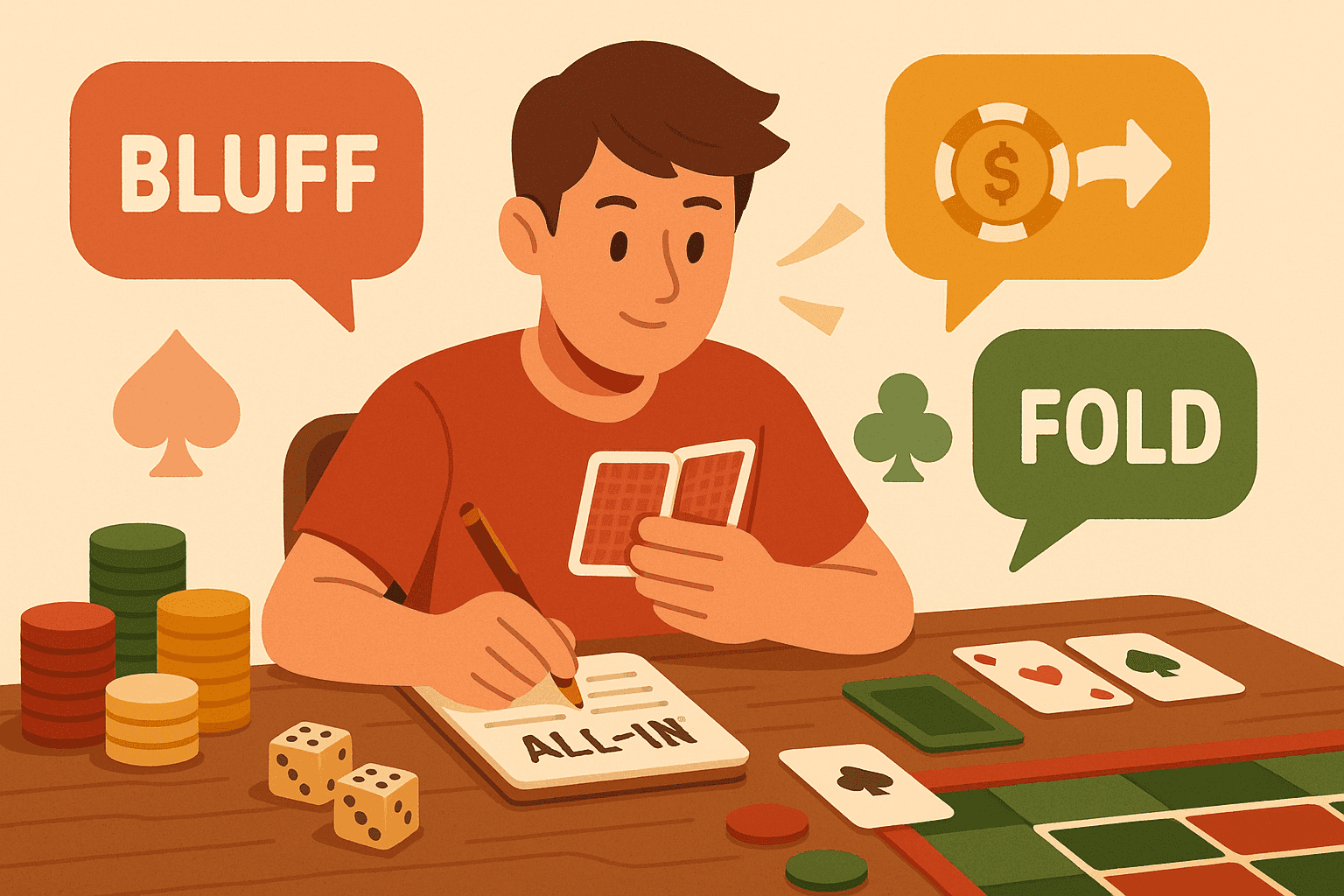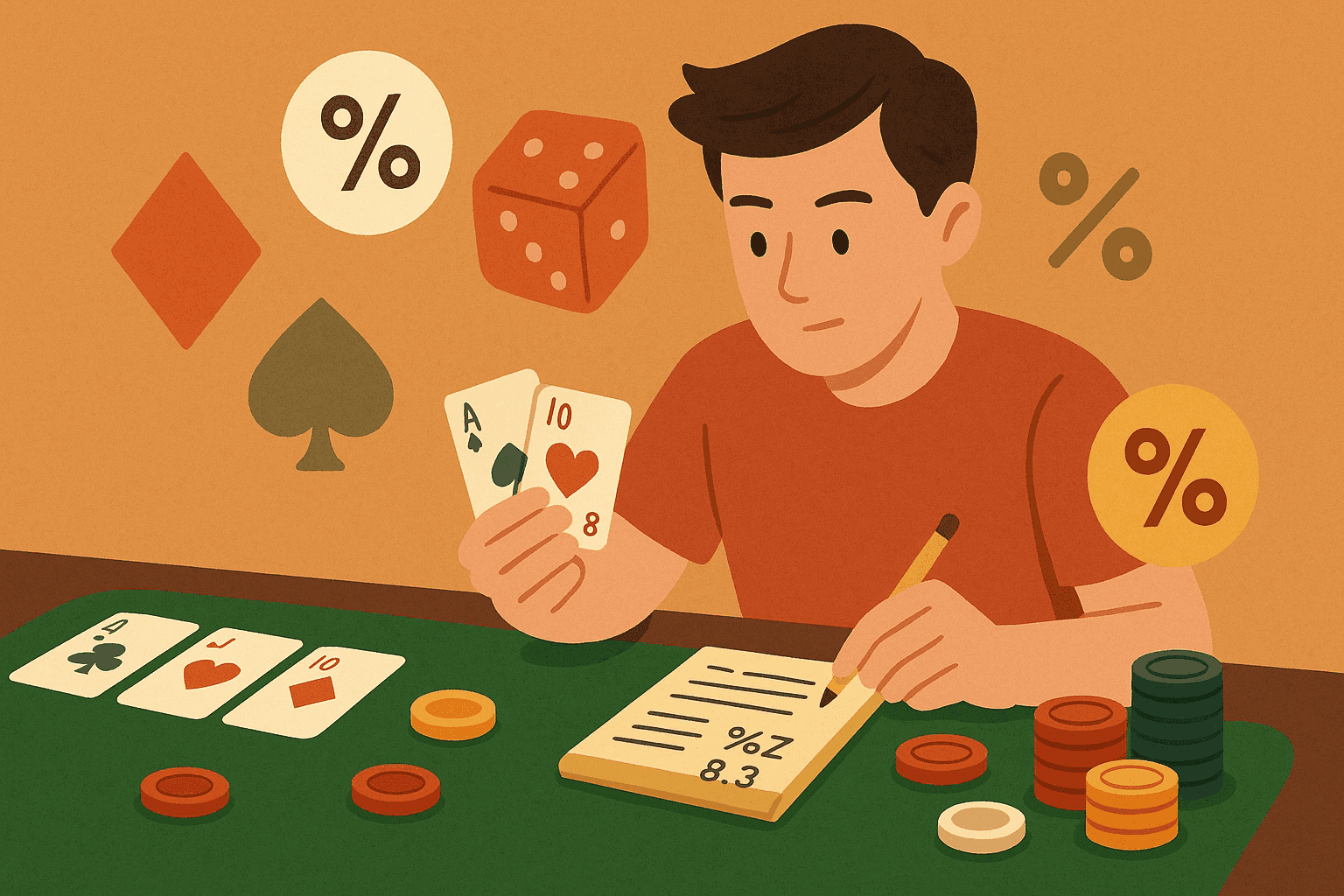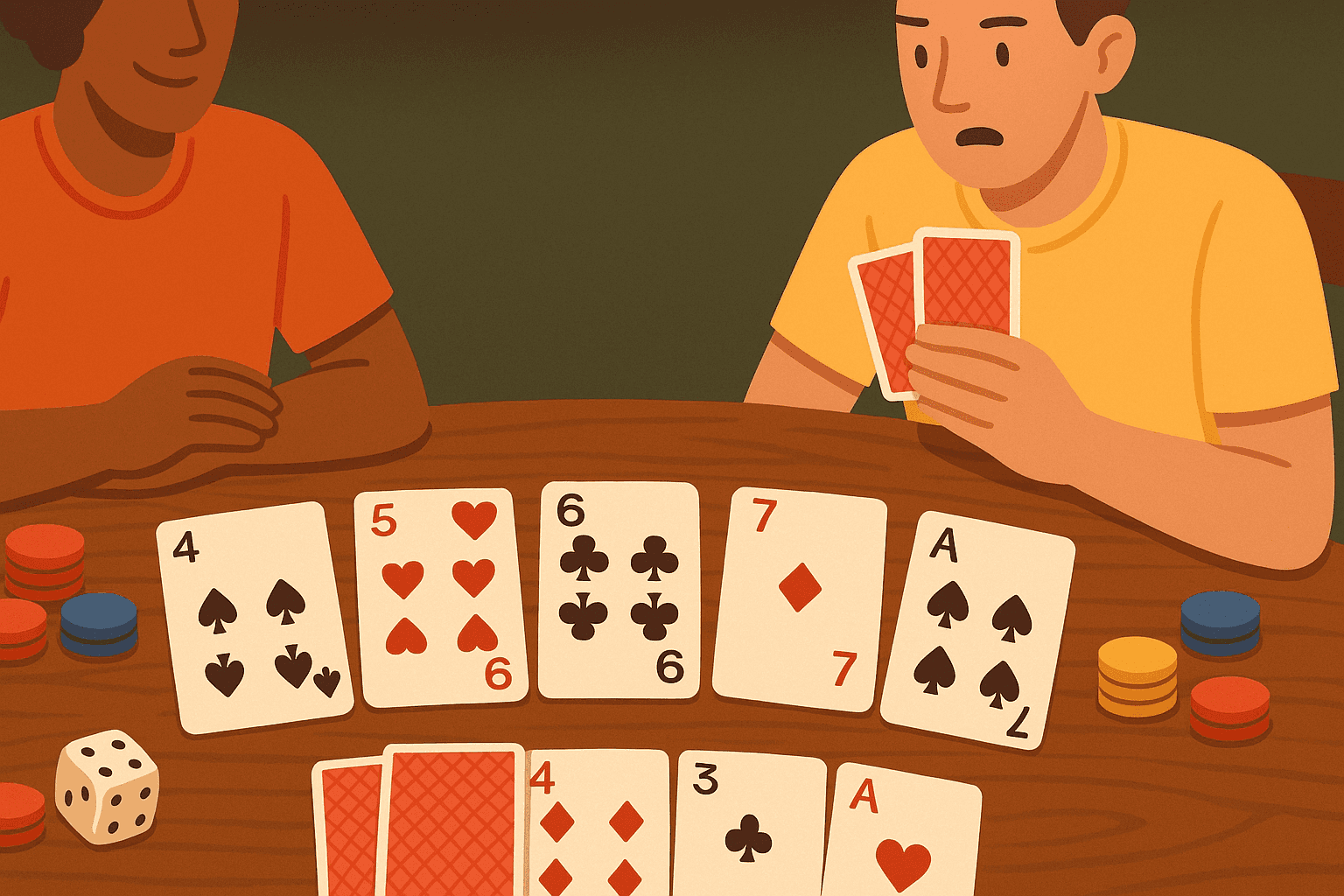
Essential Poker Terms Every New Player Should Know
Poker has its own language, and for beginners, the terminology can feel overwhelming at first. Whether you’re playing Texas Hold’em, Omaha, or another poker variant, learning the most common poker terms will help you follow the action, understand strategies, and communicate at the table. This guide explains the essential poker terms every new player should know, complete with examples and a quick-reference table.
If you’re completely new to the game, you might also want to read our complete poker rules guide to understand how the game works step by step.
Created By Adam Davis Fernsby
Basic Game Terms
Blinds
- Definition: Forced bets placed before cards are dealt to create action. There are usually two: small blind and big blind.
- Example: If the blinds are 1/2, the small blind posts 1 chip, and the big blind posts 2 chips.
Ante
- Definition: A small mandatory bet contributed by all players before a hand begins.
- Commonly used in tournaments to build the pot early.
Dealer Button
- Definition: A marker showing who acts as the dealer for the current hand.
- The button determines the order of betting and moves clockwise after each hand.
Pot
- Definition: The total amount of chips wagered during a hand.
- Players compete to win the pot.
Betting Terms
Check
Passing the action to the next player without betting. Only possible when no previous bets have been made in the round.
Call
Matching the current bet to stay in the hand.
- Example: Opponent bets 20 chips → You call 20 chips.
Raise
Increasing the current bet. Other players must match the new amount or fold.
- Example: Opponent bets 10 chips → You raise to 30 chips.
Fold
Giving up your hand and exiting the round. You cannot win the pot after folding.
All-In
Betting all your remaining chips. If you win, you can double or triple up depending on opponents' bets.
Hand-Related Terms
Hole Cards
The two private cards dealt face down to each player in Texas Hold’em.
Community Cards
Shared cards placed face up in the center of the table for all players to use.
Flop, Turn, and River
- Flop: The first three community cards dealt.
- Turn: The fourth community card.
- River: The fifth and final community card.
Kicker
A side card used to break ties when two or more players have the same primary hand strength.
- Example: A♠ K♣ vs. A♦ Q♠ → The player with K♣ wins because the kicker is higher.
Strategy and Probability Terms
Outs
Cards remaining in the deck that can improve your hand.
- Example: Holding four hearts and needing one more for a flush = 9 outs.
Pot Odds
The ratio between the current size of the pot and the cost of calling a bet is named pot odds. Used to decide whether calling is profitable.
- Example: Pot = 100 chips, call = 20 chips → Pot odds = 20%.
Position
Where you sit relative to the dealer button, which affects betting order. Acting last usually provides a strategic advantage.
Bluff
Betting or raising with a weak hand to make opponents fold stronger hands. A well-timed bluff can win pots without needing the best cards.
Quick Reference Table for Key Poker Terms
| Term | Definition | Example |
|---|---|---|
| Blinds | Forced bets to start the action | Small blind = 1, big blind = 2 |
| Ante | Mandatory bet by all players | 5 chips each before the deal |
| Pot | Total chips wagered in a hand | 100 chips in the middle |
| Call | Match the current bet | Opponent bets 10, you call 10 |
| Raise | Increase the bet | Opponent bets 10, you raise to 30 |
| Fold | Discard your hand and stop playing | You fold and wait for the next round |
| All-In | Bet all your remaining chips | Push your entire stack forward |
| Flop | First three community cards | 8♠ 10♥ K♦ |
| Turn | Fourth community card | Adds a 2♣ to the board |
| River | Fifth and final community card | Last chance to improve your hand |
| Kicker | Extra card to break ties | A♠ K♣ beats A♦ Q♠ because K♣ is higher |
| Outs | Cards that improve your hand | 9 outs for a flush draw |
| Pot Odds | Compares pot size to call cost | Pot = 100, call = 20 → 20% pot odds |
| Bluff | Bet strong with a weak hand | Opponent folds better cards |
Conclusion
Learning these essential poker terms will make it easier to follow the action, understand strategies, and make better decisions at the table. Whether you’re playing casually with friends or joining online tournaments, knowing the language of poker gives you a big advantage.


